|
Who teaches Python?
Alberni District Secondary School
4000 Burde Street
Port Alberni, BC
CANADA
(250)-723-6251
Instructor: I. Thomas
(ithomas@sd70.bc.ca)
|
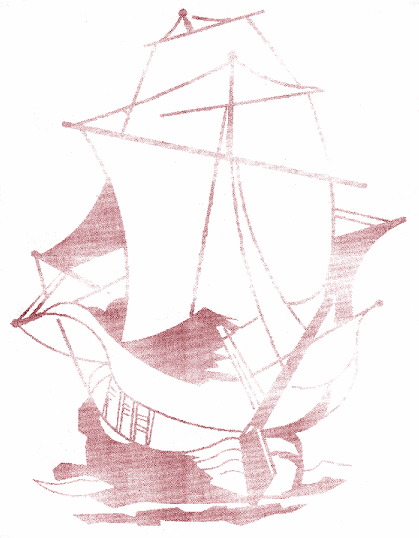
|
|
ADSS started teaching Python in September 1999. The year before,
1998/1999, was as the yearbook said The year of Zope . The school
fell in love with Zope as tool for building websites. It was a natural
progression to teaching Python to beginning programmers. Zope is use in two
course taught at our school Computer Science 11 and
Information Technology 12.
|
The Blake School
511 Kenwood Parkway
Minneapolis, MN 55403
Instructor: Christopher Smith
(csmith@blakeschool.org)
|
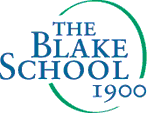
|
|
The Blake School offered its first introductory computer science course
in 2001. The course assumes no previous programming experience. The
Python language was chosen because it has clear syntax, includes high
level operations, and is readily available without fee for a wide variety
of operating systems. We hope to offer more advanced courses and believe
that Python will help lay a solid foundation for continued study.
|
Canterbury School
3210 Smith Road
Fort Wayne, IN
(260)-436-0746
Instructors: Mr. Nathan Yergler (both courses) & Dr. Vern Ceder
(MayTerm)
(nyergler@canterburyschool.org & vceder@canterburyschool.org)
|
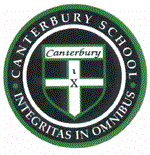
|
|
Course: Python Programming
Python is an interpreted language designed for simplicity, clarity and
elegance. This course will introduce students to computer programming
using Python. Topics covered will include console applications, object
oriented programming, graphical applications and network programming,
finishing with some exercises in game programming using PyGame.
Course: MayTerm PyGame
This course will provide a brief introduction to the Python
programming language and how to program simple games using it. Python is
an object-oriented, loosely-typed language well suited to rapid
prototyping and development. The course will cover using the Simple
Direct Media Player and the pyGame libraries for game graphics and sound.
By the end of the course students will have the tools necessary to
construct strategy, board and simple 2D shooting games. Previous
programming experience required.
|
Gimnasio Fidel Cano
Calle 35 # 79 A 05
Bogotá, Colombia
(57 1) 2636875
Instructor: Igor Támara
(igor@tamarapatino.org)
|
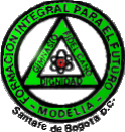
|
|
Curso:
Software para todos
EL valor que fundamenta este proyecto es la colaboración, la
colaboración se ve reflejada en la exposición de material
generado por los estudiantes, fruto de la experiencia con tecnología
de punta. Las herramientas que puedan generar se espera que puedan ser
empleadas por otros para compartir experiencias. Es deseable poder
desarrollar herramientas y contenidos que beneficien a la comunidad
educativa y que sean una fuente de satisfacción para los autores
Experiencias como el software libre son las que inspiran este valor,
transformamos lo que otros hacen de acuerdo a nuestros sentimientos. Si
cada estudiante comparte con los demas su trabajo, puede además
emplear el trabajo de otros, y apropiarlo para construir cada vez
más rápido y extender las soluciones a problemas de mayor
envergadura.
El área de Sistemas y Computación se divide en
Programación y aplicación, tienen su bibliografía
propia, sugerida por el orientador. Además se pueden encontrar
textos digitales en Internet que dan explicaciones de distintas formas a
los mismos temas.
|
The Henry Samueli School of Engineering
444F Engineering Tower
Irvine, CA 92697-2625 USA
Instructor: Pai H. Chou, Assistant Professor of ECE
(chou@ece.uci.edu)
|
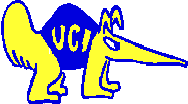
|
|
Course: Design and Analysis of Algorithms [ Fall 2001 ECE 235 | Fall 2000 ECE 235 ]
This graduate level course is taken by first-year electrical and
computer engineering graduate students. The analysis part covers
correctness proof, complexity analysis, etc, while the design part
involves understanding existing algorithms and extending or applying them to new problems. We started including Python programming as homework
assignments in Fall quarter 2000. We consider Python to be an
algorithm-oriented language. It provides a syntax very similar to that of
the textbook, and more importantly, it provides a rich set of data
structures that can express aggregate data structures such as graphs and
flow networks without having to define classes. This enables students to
focus on algorithm design, rather than struggling with data structure
design and inventing new mini-languages.
Course: ECE 12: Introduction to Programming
Starting Fall quarter 2002, we will be changing introduction to
programming for computer engineering majors from C to Python. It will be
an attempt to give students a solid introduction to fundamental concepts
in programming and to develop their problem-solving skills with a modern
computer language and libraries. This will also give students more
compelling course projects.
|
|
|
Henry Sibley High School
W. St. Paul, MN
Instructor: Tim Wilson
|
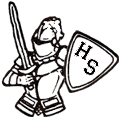
|
|
Course: Introduction to Computer Programming
Although the particular programming language used is largely
irrelevant to the goal of learning the basics of programming, we'll be
using Python. Python offers clear syntax, easy access to functional and
object-oriented programming styles, and runs on everything from a monster
Unix server, a desktop PC running Windows, to a Palm Pilot PDA. Python is
a very popular language in the in Web development circles, the scientific
community, and the world of 3D graphics and animation.
|
|
|
Lane Community College
4000 East 30th Avenue
Eugene, Oregon 97405 USA
(541) 747-4501
Instructor: Chris Meyers
(cmeyers@guardnet.com)
|

|
|
Lane Community College serves students in and around Eugene Oregon. The class "Programming for Fun" which introduces Python was offered through the continuing education department for the first time in the summer of 2001 and attracted 15 students of all ages, from 16 to 66.
|
Margolin Hebrew Academy
390 South White Station
Memphis, TN 38117
(901) 682-2409
Instructor: Bryce Embry
(bembry@bembry.org)
|

|
|
Course: Python Course
MHA/FYOS offered its first course in Python during the 2001-2002 school
year. The class includes students in grades 9 - 12 and is currently our
only programming course. As a first step in introducing students to the
wonderful world of bossing around your computer, Python has been a
wonderful tool. And for a neophyte programming teacher, the clarity of
Python has been a blessing.
|
Universidad del Valle de Guatemala
18 Avenida 11-95, Zona 15, Vista Hermosa III
Guatemala, Guatemala
(502)-2364 0336 / 40, 2364 0492 / 7
Extensiones 464 y 465
info@uvg.edu.gt
|
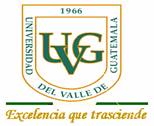
|
|
Curso: Fundamentos de Programación
Este curso está diseñado para iniciar a los estudiantes en la
aplicación de algoritmos utilizando algún lenguaje de
programación por procedimientos. Pretende unificar criterios sobr
computación, orientado a ingenieros y científicos. Tiene como
propósito profundizar en el análisis y diseño de
programa estructurados, para llegar a la implementación y
depuración de los mismos.
|
University of Pittsburgh
CLSI 5807-MT, 200 Lothrop Street
Pittsburgh, PA 15213-2582
(412) 647-5529
Instructor: James H. Harrison, Jr., MD, PhD
(jhrsn@pitt.edu)
|

|
|
Course: Problem-Oriented Programming
This course is an experiment that attempts to provide skills with a software
toolset that will remain useful in the long term, to use this toolset to
teach the programming concepts that are most important for graduate students
in medical informatics and to save time in the curriculum while doing so. It
is designed to teach rapidly a high-level, byte-code-interpreted programming
language--Python--which is platform-independent and has a reputation for
clear syntax, easy code maintainability, friendliness and rapid progress for
beginners, and depth for professionals. The language is introduced quickly
in the first half of the semester, and the second half is dedicated to a
series of problems in object oriented programming, data structures, database
access, Web communications, GUI development, etc., that illustrate
real-world applications of programming.
|
Yorktown High School
5201 N. 28th Street
Arlington, VA 22207
(703)-228-5400
Instructor: Jeff Elkner
(jeff@elkner.net)
|

|
|
Yorktown is now in its seventh year using Python as the language of
instruction in our first year computer science courses. The students
love it and we really don't know how we managed before Python ;-)
Guido van Rossum made annual visits to our school while he lived in
the DC area, and the whole Python community has been tremendously
supportive!
|
An additional list of schools using Python can be found
here.
|
|
|